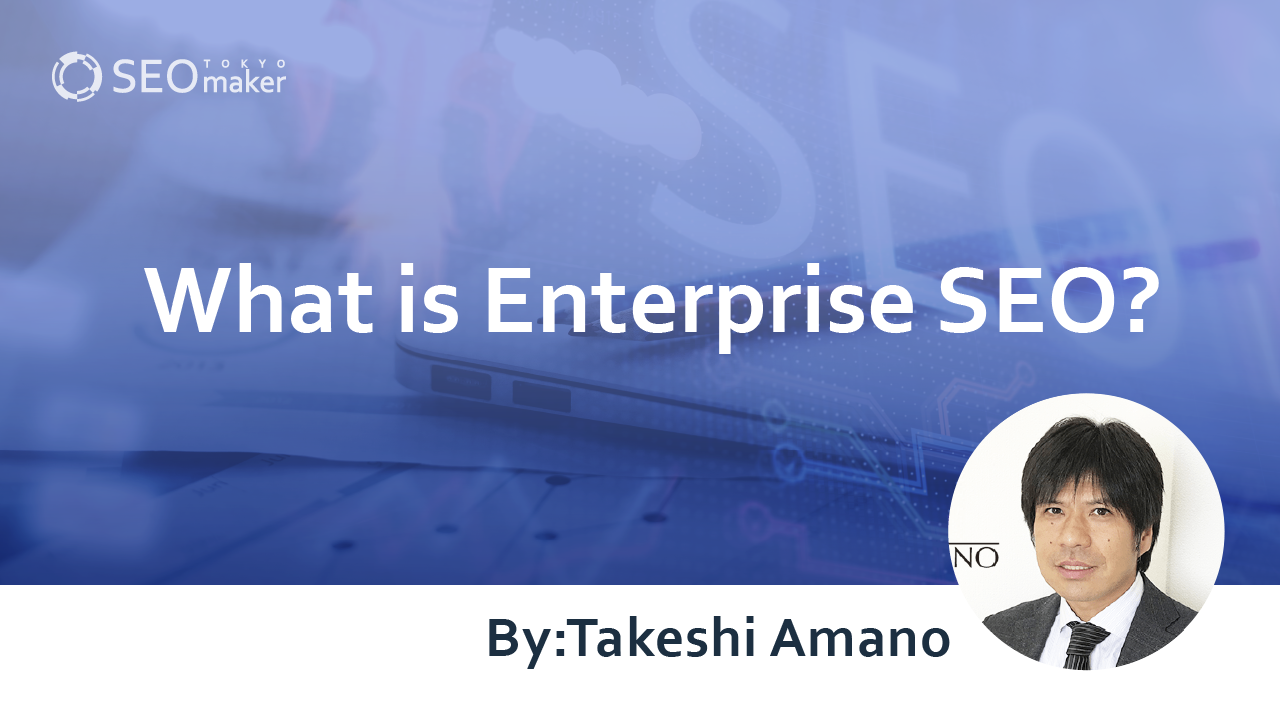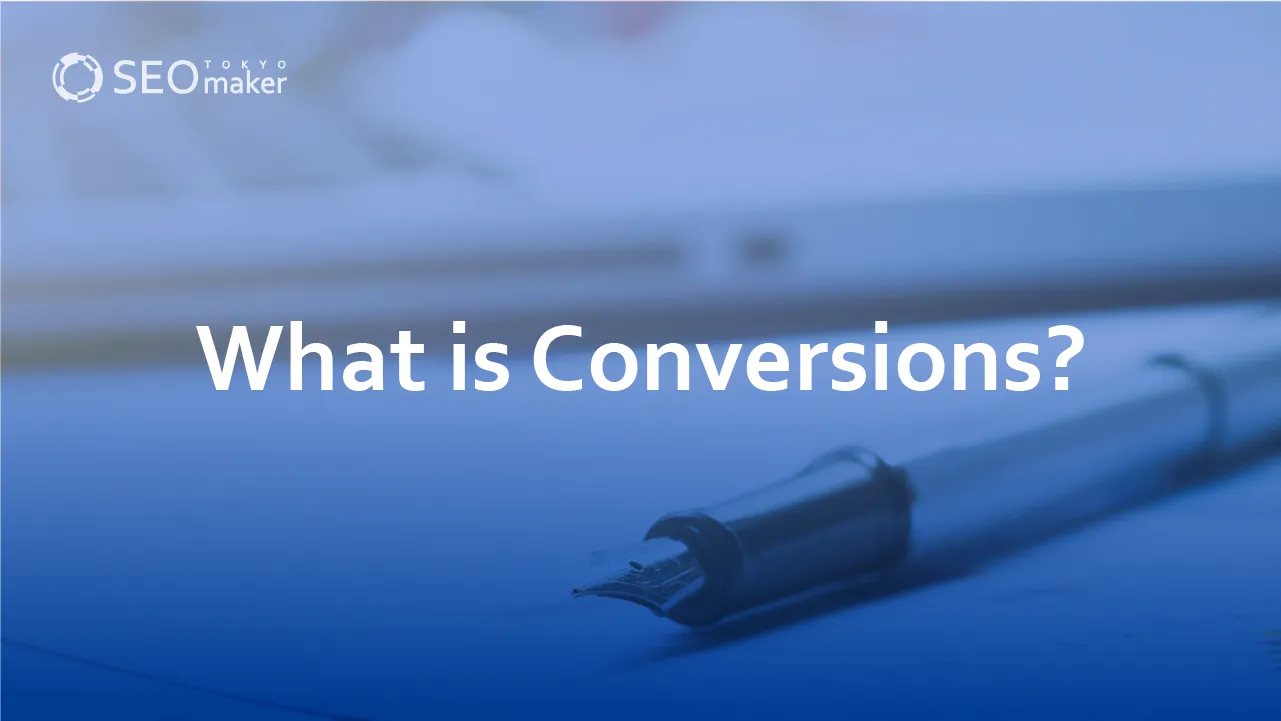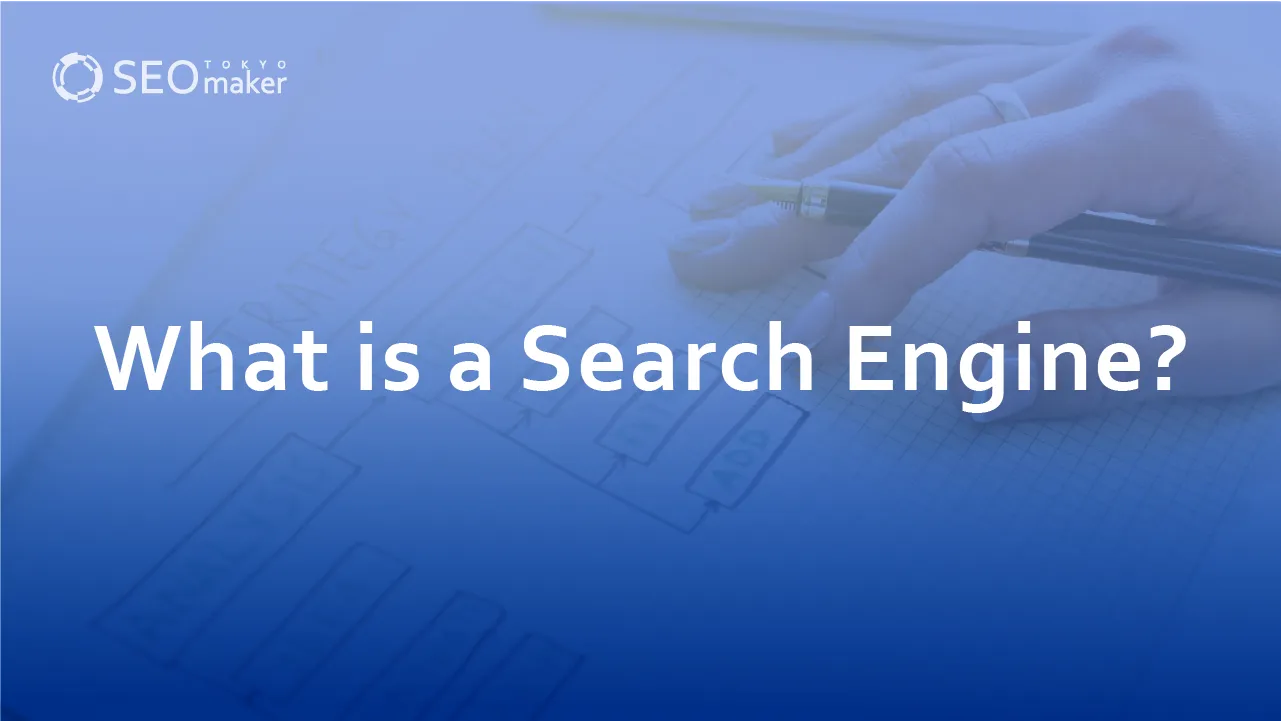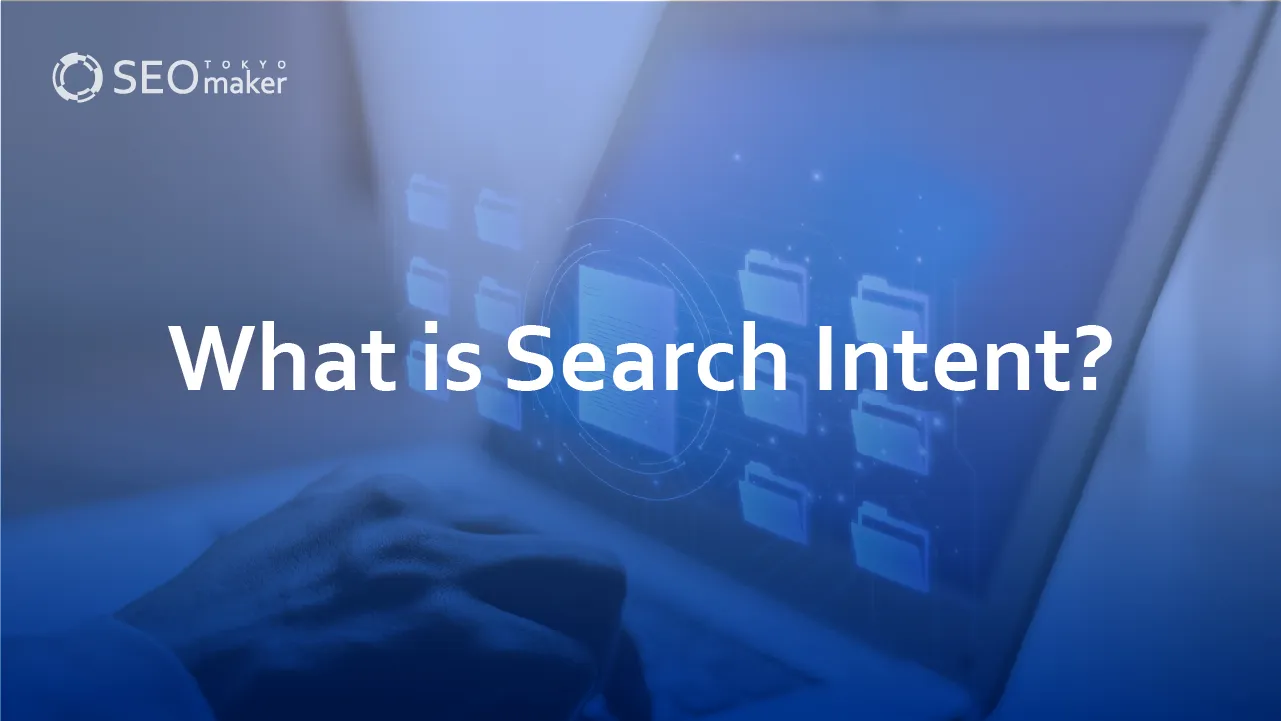What is Enterprise SEO? : Key Features and Tips for Success
contents

Enterprise SEO, in essence, is similar to SEO in any field, with its fundamental components. However, it possesses unique characteristics that set it apart.
Furthermore, Enterprise SEO comes with various challenges that need to be understood and addressed effectively to achieve tangible results.
In this article, we will introduce an overview of Enterprise SEO, its features, and approaches to tackle current challenges to ensure success.
By reading this article, you will gain an understanding of what Enterprise SEO entails are and how to navigate its challenges, leading you to achieve success. Be sure to read on for valuable insights.
Understanding Enterprise SEO
The term “Enterprise” directly translates to “business” or “operation.” Thus, Enterprise SEO can be succinctly described as “SEO practices carried out by businesses.”
Enterprise SEO primarily involves large organizations and major corporations optimizing their websites and content to achieve top search engine rankings.
Given the target audience of large organizations and major corporations, substantial financial resources are commonly invested in their websites and content.
Consequently, SEO strategies and adjustments targeting high-volume search terms, also known as “big keywords,” are implemented to compete for top search rankings and align with search engine algorithms.
Every business strives to acquire more traffic, leading to fierce competition for search rankings on a daily basis.
It is worth noting that Enterprise SEO encompasses not only large corporations but also includes small and medium-sized enterprises (SMEs) and other corporate entities.
While large corporations focus on SEO strategies for big keywords, SMEs often concentrate on “long-tail keywords,” which have lower search volumes but represent long-term needs, dedicating efforts to SEO optimization accordingly.
SEO vs. Content SEO: Understanding the Differences
To summarize the differences between SEO, Content SEO, and Enterprise SEO, they are as follows.
- SEO : Refers to a set of strategies aimed at improving search rankings overall.
- Content SEO : Focuses on enhancing content or product purchase rates.
- Enterprise SEO : Involves advanced SEO strategies implemented by corporations or businesses.
SEO (Search Engine Optimization ) encompasses tactics aimed at enhancing the search rankings of websites and content across search engines. Regardless of any prefix added before the term “SEO,” the essence remains the same, improving search rankings.
Content SEO is a subtype of SEO that primarily concentrates on the quality and utility of content. It aims at boosting the purchase rates of products or services by promoting them through websites or online platforms. Unlike focusing solely on the website itself, Content SEO directs efforts toward enhancing content or product visibility to increase search rankings.
Key Features of Enterprise SEO
Enterprise SEO exhibits several distinctive characteristics.
-Measures are implemented on a company-wide basis.
-High-revenue big keywords are targeted.
-Due to high competition, regular updates are essential.
Company-Wide Approach
Enterprise SEO involves coordinated efforts across the entire organization. It is aptly named as it encompasses SEO strategies undertaken by companies as a whole.
In large organizations with multiple departments, establishing more meaningful content involves close collaboration among various departments, including:
- Information Technology
- Marketing
- Content Creation
These teams work together to develop an overall vision and strategy.
This organization-wide approach enables more technical SEO optimizations and effective content management, allowing for maintaining high search rankings in the fierce SEO competition.
Targeting High-Value Keywords
A major feature of Enterprise SEO is its strategic focus on selected big keywords.
Big keywords are ‘high-revenue keywords that many people search for.’ Examples include:
- ‘Best job sites for people in their 20s’
- ‘Recommended programming schools’
- ‘Recommended hair removal salons’
- ‘Credit cards with high cashback rates’
A search using the above keywords often shows that the top 10 search results are dominated by corporate content. This is because these keywords not only attract many searches but also have a high potential for generating significant revenue.
Improving and maintaining search rankings for these big keywords requires meticulous keyword research and competitive analysis.
For small to medium-sized enterprises that are not very well-known, ranking within the top 10 for such big keywords is extremely difficult. Therefore, it is common to aim for high search rankings with ‘long-tail keywords,’ which have fewer search users but consistent long-term search needs.
Regular Updates are Essential Due to High Competition
Enterprise SEO is characterized by intense competition. Most content targeted for Enterprise SEO aims to rank for high-demand big keywords or long-tail keywords.
Securing top positions in search results for profitable keywords not only enhances a company’s visibility but also directly contributes to revenue generation.
In essence, Enterprise SEO revolves around the struggle for top search rankings, with companies vying for supremacy. To maintain a high ranking in such a competitive landscape, regular updates are indispensable.
Search engine algorithms and trends continuously evolve. Adapting promptly and flexibly to these changes is key to success.
Challenges Facing Enterprise SEO
Currently, Enterprise SEO faces several challenges.
- Many contents are overly sales-oriented.
- Significant costs are associated with content creation, operation, and maintenance.
- Many companies use CMS (Content Management Systems) that are not suitable for SEO.
- Producing content centered around individual experiences is challenging.
- Brand strength and awareness significantly impact enterprise SEO.
Top of Form
Excessive Sales-Oriented Content
One of the current challenges in Enterprise SEO is the prevalence of excessively sales-oriented content.
Companies often prioritize promoting their content, products, and services online to drive business. However, search engines like Google primarily prioritize “valuable information that meets user needs.”
Using overly salesy language and excessive keyword stuffing can detract from the value of the content for users and also affect search rankings. Therefore, caution is necessary during content creation.
High Costs for Production, Operation, and Maintenance
Another significant challenge in Enterprise SEO is the high costs associated with production, operation, and maintenance.
For instance, content creation and management require a significant investment, and ensuring a user-friendly experience on the website demands high-speed servers, which come at a cost.
Additionally, content may need regular revisions to adapt to changes in search engine algorithms or to regain lost rankings against competitor content.
Furthermore, operations and maintenance involve various processes such as keyword research, technical SEO optimization, and data analysis, necessitating the hiring of skilled professionals and the implementation of appropriate tools, all of which incur substantial costs.
Widespread Use of Inadequate CMS for SEO
Another significant challenge in current Enterprise SEO is the widespread use of inadequate CMS (Content Management Systems) for SEO purposes.
“Inadequate CMS for SEO” refers to a CMS that is not optimized for SEO, such as
- Outdated WordPress installations that have not been updated for several years.
- Custom CMS platforms that have not been updated for years.
For example, many companies still use the older “Classic Editor” version of WordPress instead of the newer “Block Editor,” despite its widespread adoption.
Moreover, some companies opt for custom CMS solutions instead of WordPress, but these may not be SEO-friendly or may remain outdated for several years.
Continuing to use outdated CMS versions can result in reduced crawlability and hinder improvements in search engine rankings.
CMS updates are designed to consider the effectiveness of SEO. Therefore, sticking to older versions solely due to familiarity may be counterproductive.
Top of Form
Challenges in Creating Personal Experience Content
Given the nature of handling corporate content, incorporating elements like “personal experiences” into the content is also challenging in Enterprise SEO.
Referring to Google’s published Search Quality Evaluator Guidelines, the acronym “EEAT” (Experience, Expertise, Authoritativeness, Trust) is recommended, emphasizing the importance of “Experience” and “Expertise” in content.
While personal experiences can be freely shared in content such as staff blogs, targeting articles for high-volume keywords makes it difficult to incorporate personal experiences.
Significance of Brand Power and Recognition
Another challenge in current Enterprise SEO is the significant role played by a company’s “brand power” and “recognition.” Content from highly recognized brands tends to perform well in SEO and is more likely to appear at the top due to its authority.
Conversely, lesser-known small and medium-sized enterprises face limitations in search result rankings, making it harder to acquire traffic. Therefore, targeting long-tail keywords instead of big keywords is often recommended for them.
However, in recent years, there has been a rise in “major corporations targeting long-tail keywords.” Despite being long-tail, it is exceedingly difficult for small businesses or individuals to compete with the authority and trustworthiness of major corporations.
Focusing on content creation that emphasizes the company’s unique expertise or caters to niche search needs is crucial, highlighting a key issue in Enterprise SEO.
Tips for Success in Enterprise SEO
To achieve success in Enterprise SEO amidst various challenges, consider the following tips.
- Differentiate between content aimed at attracting traffic and content geared towards generating revenue.
- Incorporate elements like comparisons, recommendations, and rankings.
- Focus on acquiring new users.
- Consider implementing a CMS (Content Management System) with strong SEO capabilities.
- Regularly analyze and update content to stay relevant.
Strategically Utilize Acquisition and Revenue-Oriented Content
Strategically utilizing acquisition-focused and revenue-oriented content is a key factor for success in Enterprise SEO.
Acquisition content refers to articles that aim to raise awareness, visibility, and empathy among users. On the other hand, revenue-oriented content focuses on encouraging users to purchase specific products or services.
Ideally, acquisition content should make up about 70%, with revenue-oriented content comprising around 30%. As a strategy for targeting long-tail keywords, it’s effective to stimulate user interest with acquisition content and then guide them towards revenue-oriented content, which targets big keywords, through internal links.
By strategically using these two types of content, you can deploy strategies tailored to different stages of the funnel, from top to bottom.
Incorporate Comparisons, Recommendations, and Rankings
Incorporating “comparisons”, “recommendations”, and “rankings” is an essential element in Enterprise SEO, especially for keywords with high revenue potential. When users consider products or services, they typically seek information on comparisons with other options and recommendations.
By including tables and diagrams abundantly in content, you demonstrate that you understand user search intent, leading to an improvement in search rankings. Moreover, catering to various stages of the purchasing process contributes to increased traffic and customer acquisition.
Inserting “comparisons,” “recommendations,” and “rankings” can be relatively simple yet powerful approaches. In competitive Enterprise SEO environments, it is crucial to use easily understandable tables and diagrams to cater to user needs.
Focus on Acquiring New Users
Focusing on acquiring new users is another crucial element for success in Enterprise SEO.
Users who are already familiar with a product or company are unlikely to purchase directly from links within content. Therefore, relying on known users for revenue generated from content or articles is not very effective in terms of Enterprise SEO strategy.
The key in Enterprise SEO is to approach users who are not yet familiar with the product or service and to position the product or service as one of their options.
When implementing effective Enterprise SEO strategies, it is essential to focus on reaching new users rather than relying on existing ones.
Consider Implementing an SEO-friendly CMS
Considering the implementation of an SEO-friendly CMS is also crucial for succeeding in Enterprise SEO. Choosing a CMS optimized for search engines enables smooth deployment of SEO strategies and facilitates easy changes and adjustments.
For instance, if you are using WordPress, frequent updates are a must. The newer the version, the more it adapts to the latest SEO practices and often enhances usability.
Those who resist updating because they are “used to the current version” might risk their site’s ranking decline due to competitors’ latest SEO tactics. Similarly, those who cannot update due to reliance on specific version specifications may miss out on ranking improvements, resulting in missed opportunities.
Regularly updating CMS and adopting the latest SEO-friendly CMS are essential in modern SEO practices.
Do Not Neglect Analysis and Updates
To achieve reliable results in Enterprise SEO, continuous “analysis” and “updates” are indispensable.
Even if your content is SEO-ready, it may not achieve the expected rankings. Conversely, content that is not expected to perform well may surprisingly rank high.
In light of this,
- Understanding why you’re achieving high rankings
- Identifying what users expect from your content
These are crucial. Constant monitoring of traffic fluctuations and keyword effectiveness is vital.
While search engines like Google prioritize user-friendly and informative content, they do not officially disclose the specifics of their SEO algorithms.
If desired results are not achieved, making corrections, updates, and analyzing the results while continually improving is the key to success.
Summary
Enterprise SEO is primarily strategic SEO undertaken by companies in a team setting. While large corporations invest substantial resources to acquire major keywords, Enterprise SEO faces unique challenges and requires appropriate strategies. The company’s size, recognition, and brand strength are significant factors in Enterprise SEO, but it does not mean smaller businesses have no chance. Many small and medium-sized enterprises and individuals have successfully attained high rankings by targeting long-tail keywords or emphasizing their unique strengths and characteristics. However, prioritizing user-centric and valuable content is paramount. Through effective strategies and continual analysis and improvement, I hope to see Enterprise SEO lead to success.










![What is a Description? Explaining the Meaning, Writing Style, and Changing Word Count – [2023 Edition]](https://www.switchitmaker2.com/en/wp-content/uploads/2024/09/what-is-description.webp)










